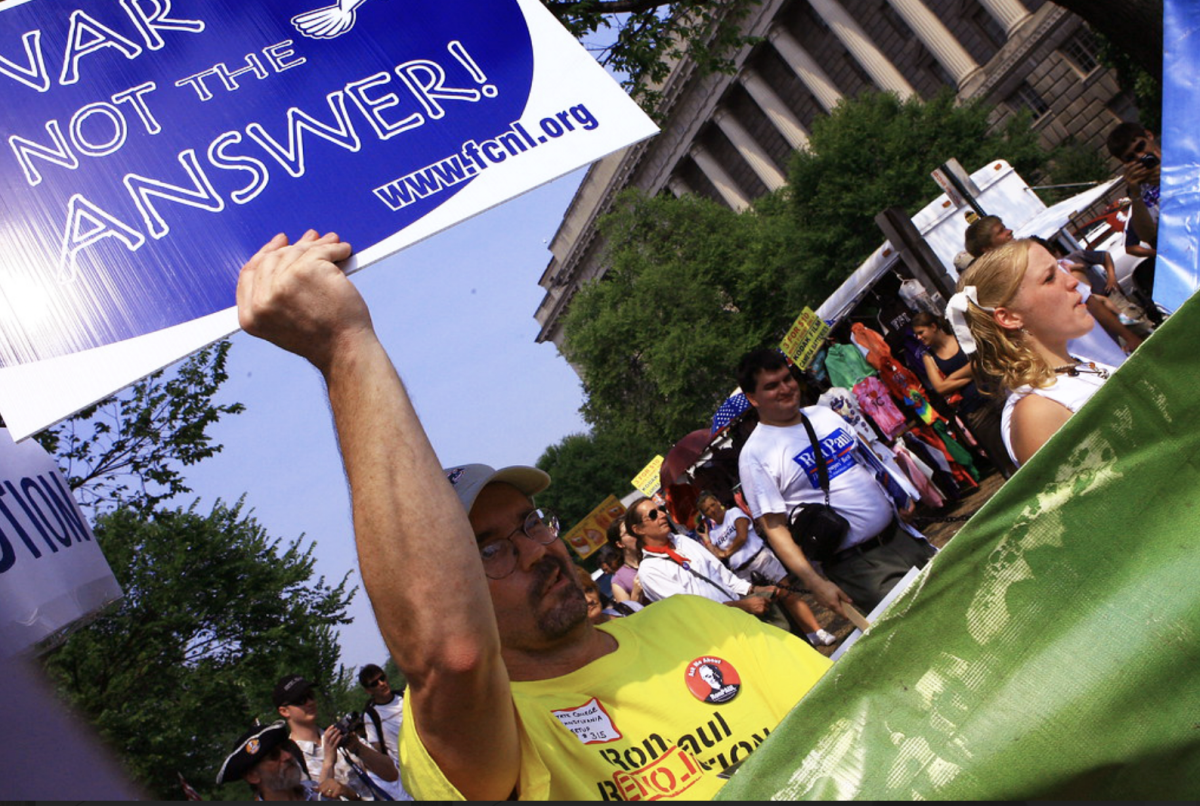On Oct. 29, the D.C. Council voted to pass an emergency legislation limiting protests in residential areas. Proposed by Councilmember Brooke Pinto, who represents Ward 2, the Residential Tranquility Emergency Amendment Act restricts protest hours and the use of loudspeakers and projectiles in neighborhoods.
The DC Council expedited the creation of the legislation when noise levels of protests near Chinese Ambassador Xie Feng’s residence exceeded 100 decibels. Similar concerns arose in the Barnaby Woods neighborhood in Northwest Washington, where neighbors complained about loud pro-Palestinian rallies at the home of State Department Spokesperson Matthew Miller.
The bill passed in the DC Council with a 9-2 vote, garnering support from Mayor Muriel Bowser, who stated in a letter to Council Chairman Phil Mendelson that the legislation “is a necessary response to the alarming rise in targeted demonstrations that intentionally disrupt the peace and wellbeing of [the District’s] residential neighborhoods.” The bill, she said, would “[protect] the safety and quality of life for all District residents while balancing protesters’ First Amendment rights.”
The emergency legislation is valid for 90 days and restricts the use of megaphones, bullhorns and other noise amplification devices from 9 a.m. to 7 p.m. Additionally, the bill bans projectiles like smoke bombs and light flares in residential protests. The Metropolitan Police Department will be required to issue warnings to protesters violating the legislation and will break up protests. Protesters who are repeat offenders of dispersal orders can be subject to arrest on misdemeanor charges.
Although the bill passed by a significant margin, Pinto was only partially successful in implementing her original plan. She initially wanted to restrict all protests in residential areas from 9 a.m. to 7 p.m., but councilmembers worried that the time frame was too broad and that there were possible issues with restricting free speech.
Councilmember Trayon White Sr., who represents Ward 8, voted against the bill. White expressed his disapproval of the legislation, arguing that the Council is not collecting enough input from Washington residents. “I don’t know if we ought to dictate how people should exercise their First Amendment rights. Is it fair to tell someone, anyone, how to express their pain, particularly in the nation’s capital?” White said before placing his vote. The American Civil Liberties Union of the District of Columbia (ACLU-D.C.) has also opposed the bill, stating that “any bill that seeks to restrict people’s First Amendment activities should not be rushed and should receive full deliberation.” In ACLU-D.C.’s statement by Policy Advocacy Director Scarlett Aldebot, she said that Pinto’s bill should be discussed with the public and follow the ordinary legislative process so Washington residents can voice their opinions.
Additionally, Activists worry that the new legislation will change how protesters interact with law enforcement. There have been many previous incidents in Washington regarding misuse of force by police, including the Nov. 15, 2023 pro-Palestinian protest at the Democratic National Committee headquarters, according to the Washington Post.
In response, the Civil Rights Corps filed a lawsuit in August, alleging the United States Capitol Police and Metropolitan Police Department of dragging, choking and excessively using chemical irritants on protesters.
Dante O’Hara, an organizer with D.C. for Palestine and the Claudia Jones School for Political Education, voiced his concern that rushing the bill will create confusion among the community and law enforcement.
Once the emergency legislation expires, the DC Council will be left to deliberate on further steps regarding noise disturbances from protests. Pinto assured that the legislation is only “the first step” toward a solution for residents, and the Council will be open to further input from citizens and advice from courts.
Once the emergency legislation expires, the DC Council will be left to deliberate on further steps regarding noise disturbances from protests. Pinto assured that the legislation is only “the first step” toward a solution for residents, and the Council will be open to further input from citizens and advice from courts.










































